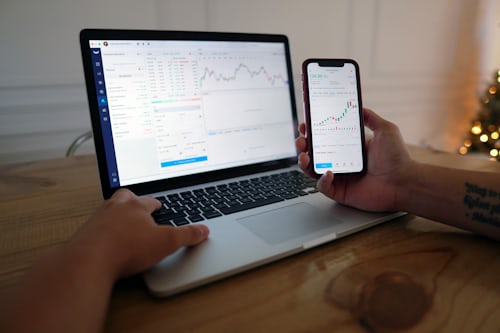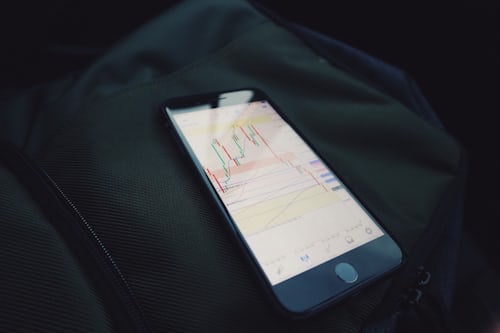- Home
- ABOUT US
- PRODUCTS
- PROJECTS
- GALLERY
- SERVICES
- BLOG
- Misjudgement of fundamental data
- Errors in technical analysis
- Misinterpretation of indicators
- Order additions forgotten
- Neglecting bankroll management
Each of these missteps can risk the available capital. Especially a lack of bankroll management quickly drives the trading account against the wall.
Successful CFD trading requires, among other things:
- Know-how in technical analysis
- Trading strategies.
Especially the latter aspect is a huge hurdle. Every trader has to come up with different approaches in order to always have the right tool at hand in different situations.
To make it easier for interested investors to get started, they rely on the CFD demo account. With its help, traders learn how trading with leveraged products works - and where pitfalls lurk.
Structure and scope of a CFD trading demo account
Trading CFD demo accounts offer advantages to beginners and experienced traders - even if their requirements differ. Trading beginners use the account to get a taste of trading with contracts for difference. For the more experienced trader, it is primarily a matter of trying out or adapting strategies without risk - and perhaps familiarising oneself with new markets.
Basically - according to the experience from the CFD demo account test - trial accesses to the trading platform are usually structured in the same way as a real money trading account. The advantage: investors gain skills in handling the trading platform with the demo trades. This is a very important aspect in order to be able to execute real trades later with the necessary security.
But: In a comparison between the CFD brokers, very clear differences between the demo accounts quickly become apparent. A very important aspect is the question of whether the CFD demo account can be used indefinitely like in Exness personal area login. Unfortunately, this is not the case everywhere. Depending on the broker, the duration of use can range from a few days to several weeks. Both variants are not the optimum in the CFD demo account test - compared to access without a time limit.
Particularly annoying is a usage duration of only a few days is particularly annoying. From the point of view of experienced traders, these accounts are largely useless, as no lengthy tests of strategies and indicators can be carried out. Beginners can indeed get a superficial picture of CFD trading. But they will also not succeed in gathering the necessary know-how for lasting success.
Not all assets can be traded
How long the demo account can be used is one side of the coin. It should not be underestimated to what extent the technical analysis is fully available for the demo - and which assets are tradable.
In our test of CFD demo access, we found that the range of tradable assets offered by various brokers - in comparison with the real-money trading account - is shrinking. In concrete terms, this means that various underlying assets cannot be traded with virtual currencies. This aspect is definitely a disadvantage. Especially if only very few underlyings can be traded for a market without limitation via the CFD demo account, a distorted picture of the market movements sometimes arises.
The direction of travel for the selection of the demo account is therefore clear. Preference is given to offers that reflect the real money account as comprehensively as possible - also with regard to the tradable underlyings.
What types of trading are there in CFD trading at all? Contracts for difference are offered today by most brokers for five asset classes:
- Commodities
- Shares
- Indices
- Currencies/Forex
- cryptocurrencies.
The latter are a market with very high volatility - i.e. the prices fluctuate very strongly back and forth. Among other things, this development is an expression of comparatively low liquidity. In addition, it has become increasingly problematic with some cryptocurrencies that a considerable share of the coins created is concentrated at a few addresses.
This development naturally has an impact on how the prices develop - and with what performance Bitcoin CFDs and contracts for difference on other altcoins are traded. Having only one or two cryptocurrencies to choose from in the demo account - this cannot provide a comprehensive picture of the market. The same principles apply to all asset classes.



